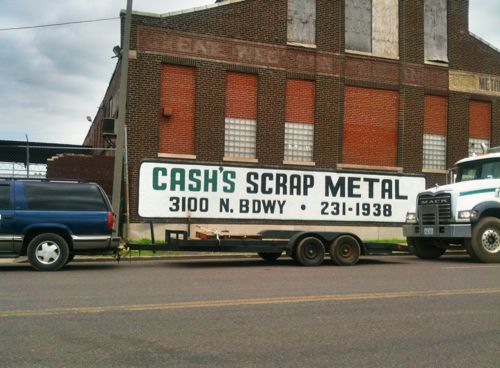Poll: Missouri Back-to-School Sales Tax Holiday a Good Idea?
Missouri’s Back-t0-School Sales Tax Holiday is August 5-7:
During this time, Missourians won’t have to pay the state’s 4.225 percent sales tax on certain purchases made in the state. Alana Barragán-Scott, director of the Missouri Department of Revenue, said the tax break will help those making big purchases the most. (Source)
Our state government even produced a lame video to promote the event:
httpv://www.youtube.com/watch?v=8W8qA5DbRcA
From the Missouri Back-to-School Sales Tax Holiday page:
Certain back-to-school purchases, such as clothing, school supplies, computers, and other items as defined by the statute, are exempt from sales tax for this time period only.
The sales tax holiday applies to state and local sales taxes when a local jurisdiction chooses to participate in the holiday. However, local jurisdictions can choose to not participate in the holiday if they enact an ordinance to not participate and notify the department 45 days prior to the sales tax holiday. If the jurisdiction had previously enacted an ordinance to not participate in the holiday and later decided to participate, it must enact a new ordinance to participate and notify the department 45 days prior to the sales tax holiday.
If one or all of your local taxing jurisdictions are not participating in the sales tax holiday, the state’s portion of the tax rate (4.225%) will remain exempt for the sale of qualifying sales tax holiday items.
The sales tax exemption is limited to:
- Clothing – any article having a taxable value of $100 or less
- School supplies – not to exceed $50 per purchase
- Computer software – taxable value of $350 or less
- Personal computers – not to exceed $3,500
- Computer peripheral devices – not to exceed $3,500
Thankfully the site details how these items are defined:
Section 144.049, RSMo, defines items exempt during the sales tax holiday as:
“Clothing†– any article of wearing apparel, including footwear, intended to be worn on or about the human body. The term shall include but not be limited to cloth and other material used to make school uniforms or other school clothing. Items normally sold in pairs shall not be separated to qualify for the exemption. The term shall not include watches, watchbands, jewelry, handbags, handkerchiefs, umbrellas, scarves, ties, headbands, or belt buckles.
“School supplies†– any item normally used by students in a standard classroom for educational purposes, including but not limited to, textbooks, notebooks, paper, writing instruments, crayons, art supplies, rulers, book bags, backpacks, handheld calculators, chalk, maps, and globes. The term shall not include watches, radios, CD players, headphones, sporting equipment, portable or desktop telephones, copiers or other office equipment, furniture, or fixtures. School supplies shall also include computer software having a taxable value of three hundred fifty dollars or less.
“Personal computers†– a laptop, desktop, or tower computer system which consists of a central processing unit, random access memory, a storage drive, a display monitor, and a keyboard and devices designed for use in conjunction with a personal computer, such as a disk drive, memory module, compact disk drive, daughterboard, digitalizer, microphone, modem, motherboard, mouse, multimedia speaker, printer, scanner, single-user hardware, single-user operating system, soundcard, or video card.
The poll question this week seeks to find out what readers think of this annual event. The poll is located in the upper right corner of the blog.
– Steve Patterson



